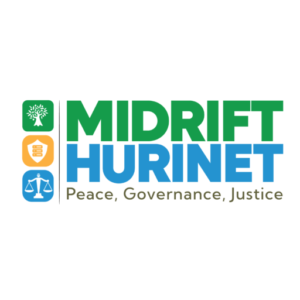Madam Celina Nkatha Acting Director Department of Gender and Sub-county officials during the Launch of Gender Based Violence Report and IEC material on December 07, 2020
The rise of gender based violence stemming from poverty, insecurity and lack of effective policing is alarming and women and girls continue to pay the ultimate price of this phenomenon plus other forms of violence.
According to population based research here in Kenya, 39% to 45% of women have experienced some form of GBV with intimate partners being the most frequent perpetrators.
In Nakuru, gender based violence is prevalent especially among women and girls living in burgeoning slum communities.
A recent study in Nakuru town and Karagita Naivasha showed that almost two out of three women have experienced atleast one form of violence from their intimate partner.
In a bid to address this phenomenon, Midrift in partnership with Dignity conducted a study in two informal settlements: Rhonda in Nakuru and Karagita in Naivasha with the goal of examining the pervasiveness and impact of GBV among women living in the sprwaling slums of Nakuru County.
According to the study, GBV is highly rooted in the informal settlements of Nakuru and 40% of the women reported lack of awareness of any mental health and psychosocial support services available. This is a clear indication of poor help seeking attitudes and behaviours by the victims.
The study further discusses tools and guidelines for effective public sensitization about GBV through confederation of all stakeholders so as to achieve an integrated, cross sectoral and feasible approach.
Speaking during the launch of the GBV study report and the (INFORMATION, EDUCATION AND COMMUNICATION) IEC booklet, Nakuru County director for Gender and culture Madam Selina Nkatha thanked Midrift and Dignity for conducting the study that will be used not only in Nakuru County but also the entire country as well.
Apart from building on Midrift’s work in pushing for a gender violence free society, the research recommends interventions to prevent domestic violence and other forms of violence.
The IEC material on the other hand offers detailed insights on various forms of violence and recommended remedies by giving an overview of where to seek advice and help incase of experiencing any form of violence.
ABOUT REHABILITATION PROGRAMME
DIGNITY has been working with Midrift Hurinet since 2014 on the Intersectoral Urban Violence Prevention , focused on building trust between the police and civil society. The project elucidated on the problem of GBV in the sprawling slums of Nakuru and Naivasha, and the need for mental health and psychosocial support.
To respond to the problem, DIGNITY developed the Rehabilitation project aimed at strengthening access to mental health and psychosocial support to the victims. The rehabilitation project is aimed at strengthening access to mental health and psychosocial support services to the local communities of Rhonda and Karagita in Nakuru and Naivasha, create awareness on mental health and GBV and influence policy makers to prioritize the implementation gender policy programs.
The rehabilitation project targets survivors of torture and violence, especially survivors of GBV and domestic violence in the local communities of Rhonda and Karagita in Nakuru and Naivasha, and is being implemented in collaboration with the Ministry of health.
The project also seeks to reinforce the capacities of Midrift as a key actor capable of facilitating access to Mental Health and Psychosocial Support Services(MHPSS) and promote development and implementation of gender friendly projects, as well as integrating the approach into the formal health structures
The ultimate goal of the rehabilitation project is to strengthen access to community based MHPSS for survivors of torture and organized violence through implementation of the problem management approach combined with local awareness raising and strengthening cross referral systems.
Written by:Catherine Wanderi
Midrift Hurinet




